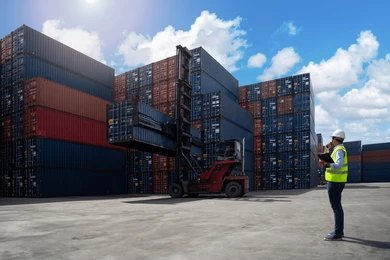Your Ultimate Storage Solution: Comparing Self-Storage, Units, and Portable Containers
- boxngo24
- Nov 23, 2024
- 3 min read

In a fast-paced world where space is a premium, having reliable storage options can make life significantly easier. Whether you’re moving, decluttering, or simply in need of extra space, understanding your storage choices is essential. From Self Storage facilities to traditional storage units and portable storage containers, each option has its unique benefits tailored to specific needs.
What is Self-Storage?
Definition and Concept
Self-storage refers to renting a secure space where you can store your belongings for short- or long-term durations. These spaces come in various sizes and are designed to meet a range of personal and business storage needs.
Common Reasons for Using Self-Storage
People often opt for self storage during major life transitions, such as moving, downsizing, or renovating a home. Businesses also rely on self-storage to manage inventory overflow or archive documents.
Types of Self-Storage Units
Climate-Controlled Units
Perfect for sensitive items like electronics, artwork, and furniture that require temperature and humidity regulation.
Outdoor Storage Units
Accessible drive-up units ideal for large items like vehicles, boats, or heavy equipment.
Indoor Storage Units
Located within a building, offering added security and protection from weather elements.
Benefits of Self-Storage
Decluttering Your Space: Store seasonal items or belongings you don’t frequently use.
Safe Storage for Valuable Items: Protect heirlooms, documents, or high-value items in a secure environment.
Temporary Storage During Life Transitions: Provides a reliable solution for storing belongings during moves or home renovations.
Exploring Storage Units
Overview of Traditional Storage Units
Storage units are rented spaces within a storage facility, typically used for both personal and business purposes.
Differences Between Storage Units and Self-Storage
While the terms are often used interchangeably, storage units usually refer to the physical space, whereas self-storage emphasizes the do-it-yourself access model.
Features of Storage Units
Security Measures: Most facilities offer surveillance cameras, secure locks, and on-site personnel.
Accessibility and Operational Hours: Many units provide 24/7 access, while some have specific hours.
Size and Customization Options: From small lockers to large garage-like spaces, there’s a size for every need.
Cost Factors of Storage Units
Pricing Breakdown: Costs vary based on unit size, location, and additional features like climate control.
Tips for Choosing Cost-Effective Options: Compare multiple facilities, look for promotions, and consider long-term rental discounts.
Portable Storage Containers: The Future of Convenience
Introduction to Portable Storage Containers
Portable storage containers bring storage to your doorstep. These mobile units are delivered to your location, filled at your convenience, and either stored on-site or transported to a storage facility.
How They Differ from Traditional Storage Units
Unlike traditional storage units, portable containers provide mobility and flexibility, making them ideal for people who are relocating or renovating.
Advantages of Portable Storage Containers
Mobility and Flexibility: Easily transportable to any location.
Convenience for Moving and Renovations: Allows you to pack and store belongings without the rush.
Weather-Resistant Designs: Protects items from rain, snow, and extreme temperatures.
Best Use Cases for Portable Storage Containers
Home Renovations: Keep furniture and belongings safe during remodeling.
Long-Distance Moving: Simplifies the packing and moving process.
Business Inventory Storage: A practical solution for storing seasonal or excess inventory.
Comparing Self-Storage, Storage Units, and Portable Storage Containers
Key Differences
Self-storage: Ideal for personal or business use with frequent access.
Storage units: Traditional option with fixed locations.
Portable containers: Best for flexibility and mobility.
Pros and Cons of Each Type
Each type has its advantages and limitations based on your specific needs, budget, and convenience preferences.
Conclusion
Choosing the right storage solution is about balancing your needs with the available options. Whether it’s the flexibility of portable containers, the security of traditional storage units, or the accessibility of self-storage, there’s a perfect solution for everyone.
FAQs
Q1: What’s the average cost of a storage unit?The cost varies but typically ranges from $50 to $300 per month, depending on size and location.
Q2: How secure are portable storage containers?Portable storage containers are designed with strong materials and secure locks, often paired with GPS tracking for added safety.
Q3: Can I access my self-storage unit 24/7?Many facilities offer 24/7 access, but it’s best to check the specific terms of your chosen provider.
Q4: Are climate-controlled storage units worth it?If you’re storing sensitive items like electronics, documents, or antiques, climate-controlled units are highly recommended.
Q5: How do I know what size storage unit I need?Consider the volume of items you plan to store. Most facilities offer size guides or staff assistance to help you decide.



Comments